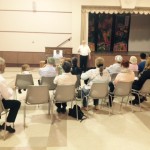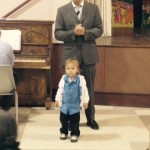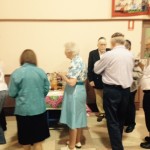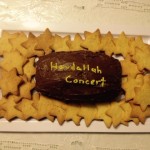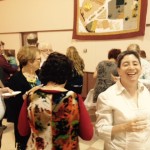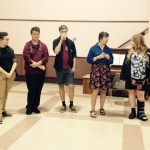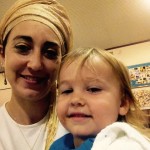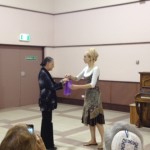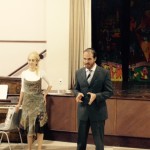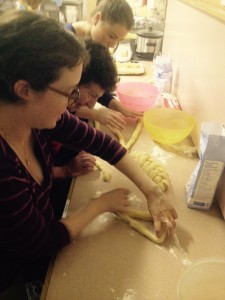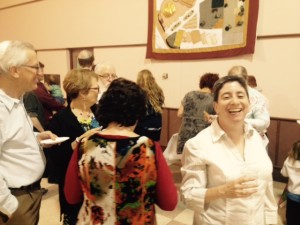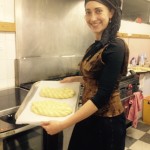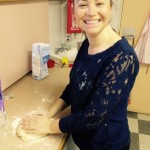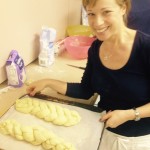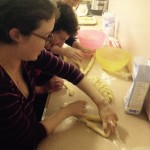Parshas Vayera: Don’t Look Back
Change is hard. Most of us are comfortable in our lives and our lifestyles. It is no wonder that we find it hard to leave things behind. A cruel boss, a toxic friendship, and a bad habit are all things we need to cut out of our lives but find hard to. But even on a simpler level, we find it difficult to walk away. How many times has a conversation with a group of friends turned to gossip or another subject that makes you uncomfortable, but you found yourself unable to turn around and walk away?
Change is really important for progress, advancement, and growth. But that doesn’t make it easy to let go of the past. Usually, when we make a change, whether it is breaking off a bad relationship or walking away from a conversation, we find it hard to sever our ties completely, even though that is the best thing to do.
In this week’s parsha, Sodom and Gemorrah are destroyed. Of the two cities, the only people to survive are Lot and his family. As they fled, they were given but one instruction: Don’t look back; you can never look back. Nevertheless, Lot’s wife gave in to temptation and turned around to look back. As a result, she was turned into a pillar of salt.
How often are we turned into pillars of salt? How often do we decide to make a change, only to turn back and end up feeling uncertain, rooted to the spot in a pillar of indecision? This is not the way to make a change.
When we make a change, we must do so wholeheartedly. We have to decide the best course of action, the right thing to do, and then pursue it with our whole selves. We must flee Sodom without ever looking back.
This week, think about something in your life that needs to change. What action can you take to make it happen? Then take it! And, most importantly, keep your eyes on the prize, on your destination, and never look back.
Shabbat shalom!
Read more on Parshas Vayera: Giving Your Best to Your Guests
Read more on Parshas Vayera: The Journey Continues
Read more on Parshas Vayera: When Avraham Teaches Us that True Self-Sacrifice is Sacrificing Your Ego
Read More
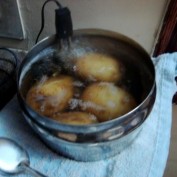 How to Keep Kosher While Traveling
Finding Food: There are three types of places you may find yourself:
Developed countries like: Canada, United States, and Australia. In most developed Western countries you can buy almost anything in a supermarket aside from meat and dairy products. A vegetarian and vegan self-caterer would have no...
How to Keep Kosher While Traveling
Finding Food: There are three types of places you may find yourself:
Developed countries like: Canada, United States, and Australia. In most developed Western countries you can buy almost anything in a supermarket aside from meat and dairy products. A vegetarian and vegan self-caterer would have no...
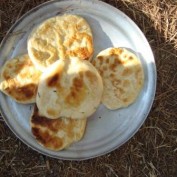 How to Keep Shabbat Anywhere
Toilet Paper: Remember to tear toilet paper. (Especially in India!!!)
Lights: Leave the bathroom light on. For high-tech places where you use your entry card to keep the lights on, I just leave the room before Shabbat and forget my key and leave the lights and air-conditioning on. I tell them at the front desk...
How to Keep Shabbat Anywhere
Toilet Paper: Remember to tear toilet paper. (Especially in India!!!)
Lights: Leave the bathroom light on. For high-tech places where you use your entry card to keep the lights on, I just leave the room before Shabbat and forget my key and leave the lights and air-conditioning on. I tell them at the front desk...
 Camping on Shabbat
How to: Build an Eruv, Bake Bread, go to the Toilet, and More
A Practical Guide to Camping Over Shabbat.
Camping on Shabbat requires extra preparation and effort, but is not that difficult once you get the hang of it – and Shabbat can be a highly rewarding experience when spent in nature. This book will show you how...
Camping on Shabbat
How to: Build an Eruv, Bake Bread, go to the Toilet, and More
A Practical Guide to Camping Over Shabbat.
Camping on Shabbat requires extra preparation and effort, but is not that difficult once you get the hang of it – and Shabbat can be a highly rewarding experience when spent in nature. This book will show you how...
 “The jungles of Borneo, Mt Kilimanjaro in Africa, a Thai boxing camp in Thailand… this guy manages to keep kosher and observe Shabbat.”
I have been traveling since 1997 and never really stopped. My house is my backpack where I have everything I need; clothing, a tooth brush, juggling balls, and a pair of small Tefillin.
People...
“The jungles of Borneo, Mt Kilimanjaro in Africa, a Thai boxing camp in Thailand… this guy manages to keep kosher and observe Shabbat.”
I have been traveling since 1997 and never really stopped. My house is my backpack where I have everything I need; clothing, a tooth brush, juggling balls, and a pair of small Tefillin.
People...

